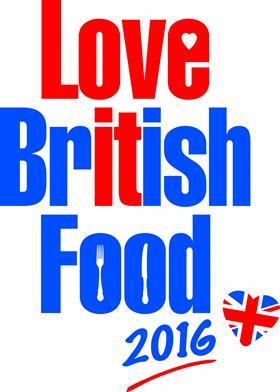
The organiser of Love British Food is calling on government to make UK producers the suppliers of choice for all public service bodies.
Alexia Robinson, founder and organiser of the campaign and its annual British Food Fortnight, wants to see British suppliers prioritised in a display of post-Brexit solidarity with the UK food industry.
“We call upon the government to boost the domestic market for our produce by committing the public sector – schools, hospitals and the Ministry of Defence – to making British food the first supplier of choice,” she said.
The campaign event, which took place between 17 September and 2 October this year, features celebrations at schools, shops, pubs, restaurants and hospitals across the country, promoting British produce.
The work the Love British Food campaign does with schools and hospitals during British Food Fortnight, which has now been running for fifteen years, “proves the possibilities and benefits of doing so”, she said.
Robinson added: “British food is at a watershed. The opportunities under Brexit are huge – not least because the government and farming marketing boards will, at long last, be able to promote British food to the British consumer – something they have not been allowed to do under the EU.
“But there are also big risks. Brexit opens up the potential threat to UK food production posed by cheap, lower-welfare imports.If EU tariffs are reduced significantly in new trade deals, this could open the doors to large volumes of lower-standard, imported food.
“The possibility of a post-Brexit cheap food agenda is real and must not be allowed to take priority over the need to build Britain’s self-sufficiency in food.”
Robinson believes the health of the nation would be diminished; the UK’s self-sufficiency in food would be put at risk; and our countryside would suffer if British produce is not prioritised over cheap lower-quality imports.
And she stressed that it is “essential to the future of British food” that the government negotiates equivalent standards of production and animal welfare in any trade agreements it makes going forward.
One public body that has already made a commitment to British produce is The Morecambe Bay Trust, which is supporting UK producers with specially created menus, cooking demonstrations, theme days and local banners and displays in restaurants.
The trust served food to almost 780,000 inpatients last year and delivered 50-60 meals a week to discharged patients in the community.
Former national chair of the Hotel & Catering Association (HCA) Andy Jones is a passionate campaigner for buying local produce. He added: “I urge all caterers in all sectors – but even more so in NHS healthcare and social care – to have menus that match the seasons.
“This will not only save money by using products that are cheaper in season, but it also allows caterers to better meet the nutritional needs of patients.”



